The difference between washed and tanned coffee beans in Kenya how to make Kenyan coffee
The difference between washing and Solar Coffee in Kenya A brief introduction to the taste production area
Summary
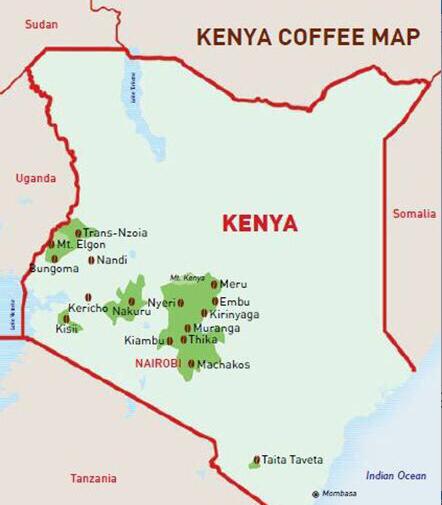
Capital: Nairobi, Nairobi
Port: Mombasa Mombasa
Growers: nearly 700000 smallholder households
Acreage: small farmers (an average of less than 1 hectare), manors (an average of 30-40 hectares, large ones with hundreds of hectares)
Planting altitude: 1400-2000 +
Planting varieties: SL28/SL34, Ruiru 11, Batian, K7
Production season: October-January in main season and April-June in secondary season (fly crop)
Planting areas: Nyeri, Muranga, Kirinyaga, Meru,Embu, Kiambu and Thika in the middle and Kericho and Kisii in the west
Coffee is very different from county to county (county) in Kenya. Kenya is divided into 47 "counties" (county).
Coffee in different counties has distinct characteristics. Coffee trees in Kenya are mostly planted at 1400-2000 meters above sea level and harvested twice a year. The growth areas include Ruiri, Thika, Kirinyaga and Mt. Kenya West, Nyeri, Kiambu and Muranga. Mainly in the foothills of Mt.Kenya and Aberdare. For example, Embu coffee characteristics, balance, citrus fruits, chocolate, apples, acidity. Nyeri coffee features, white grape, juicy, grapefruit and small tomato flavor, fruity, as sweet as caramel.
Coffee in different counties has distinct characteristics. Coffee trees in Kenya are mostly planted at 1400-2000 meters above sea level and harvested twice a year. The growth areas include Ruiri, Thika, Kirinyaga and Mt. Kenya West, Nyeri, Kiambu and Muranga. Mainly in the foothills of Mt.Kenya and Aberdare. For example, Thika Kenya Sika Plateau coffee characteristics, balanced, citrus fruits, chocolates, apples, plum acid. Nyeri coffee features, white grape, juicy, grapefruit and small tomato flavor, fruity, as sweet as caramel.
Kenya washed beans
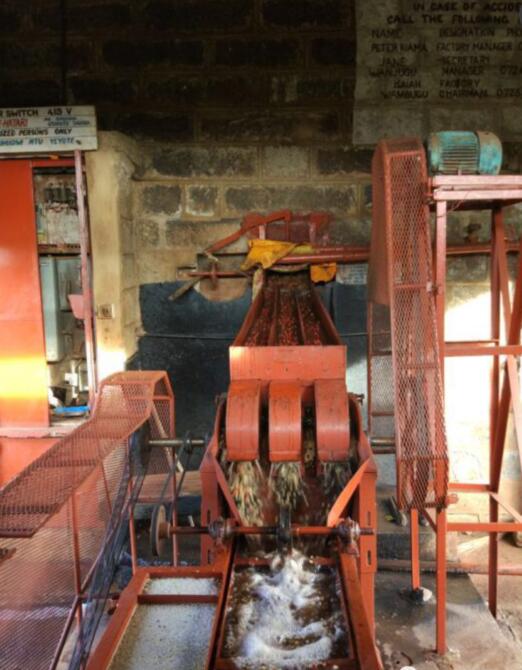
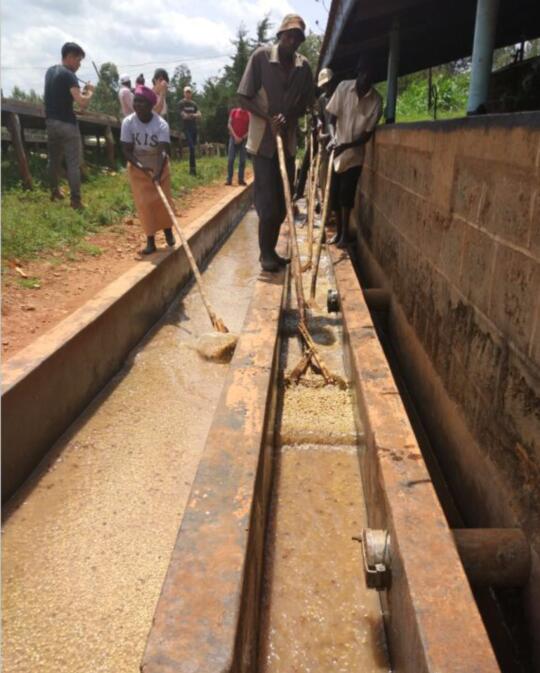
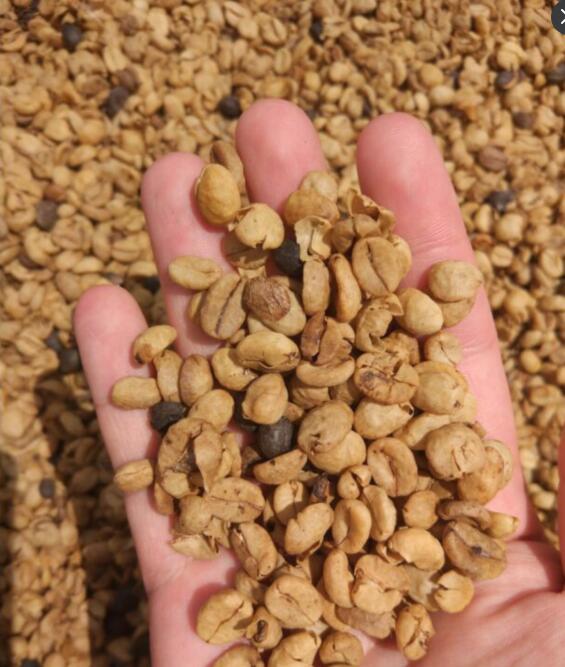
Kenyan water washing is a cyclic repeated treatment after fermentation. On the day of harvest, the best quality coffee cherries are selected, peeled and fermented. The fermentation time is 24 hours, and then washed with clean river water after 24 hours. Then, it is fermented again with clean river water for 24 hours, and then washed, so it is repeated 3 times for 72 hours, so it is called Kenyan 72-hour fermentation water washing treatment, referred to as K72. This treatment allows the coffee beans to ferment for a long time at low temperatures, so that the beans can have a brighter, cleaner but full flavor.
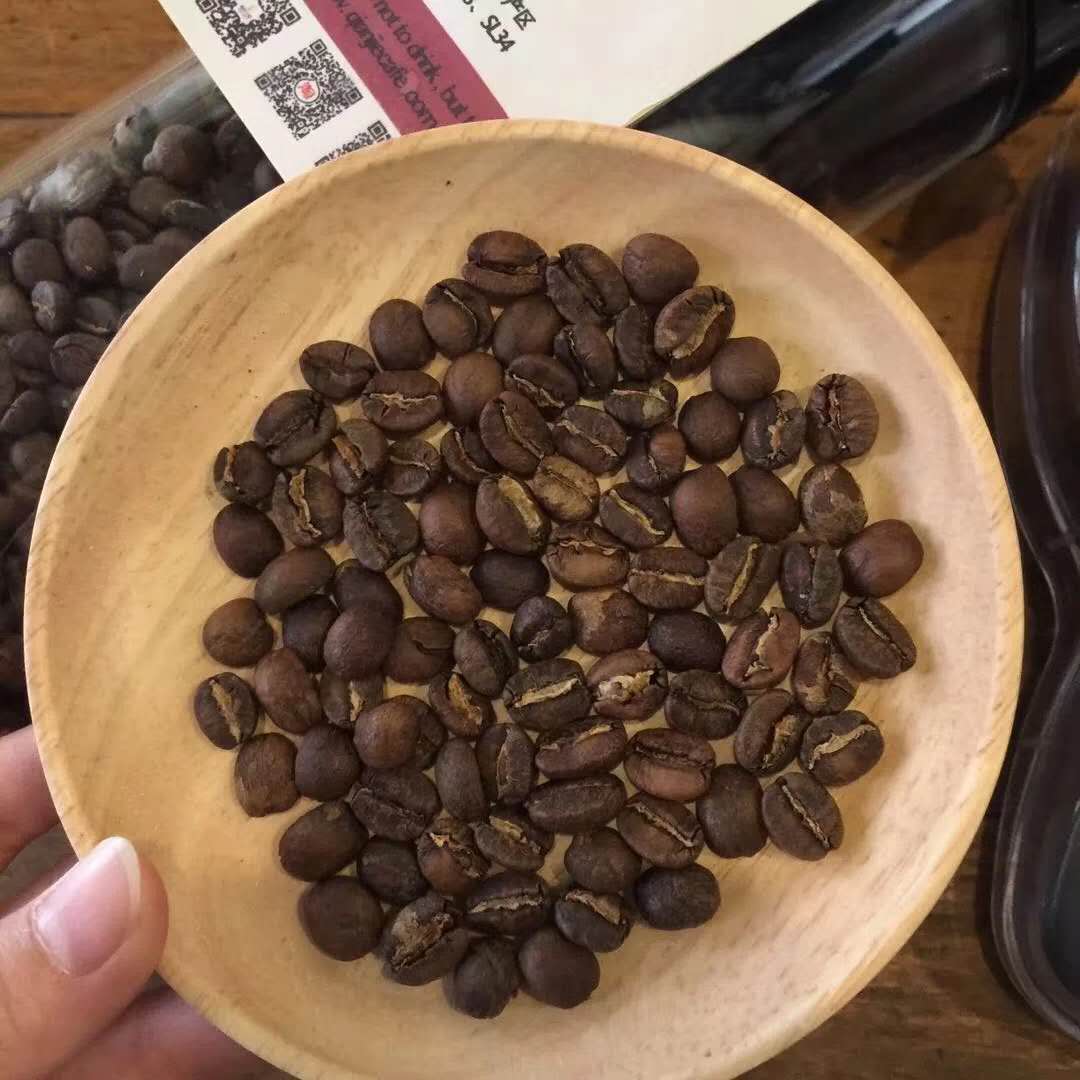
Qianjie coffee editor can't wait to make a cup of Kenyan honey processing plant Asali to drink, strong tomato aroma, berry aroma, sweet and sour amplitude, fresh and sweet aftertaste, and a hint of blackcurrant aftertaste. This coffee begins with sour and ends with sweetness. It is one of the favorite coffees of the editor.
Kenyan sun beans
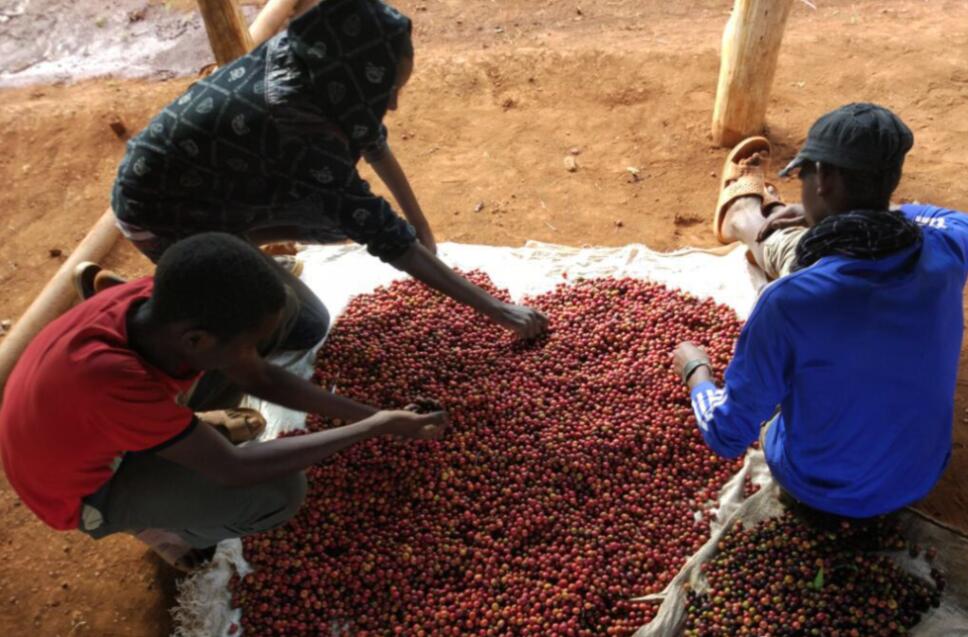
Next, let's take a look at the traditional Kenyan coffee.
Sun exposure is less common on the market in Kenya, probably because of the excellent quality of Kenyan water washing, coupled with the sun loss rate and high labor costs, which can only be found in the special customized plans of some raw bean merchants. This bean is treated in the sun, which adds solidity and sweetness to the already rich and sour bourbon coffee in the process of exquisite sun exposure. With a limited number of sun batches, this coffee is completely dependent on the natural climate.
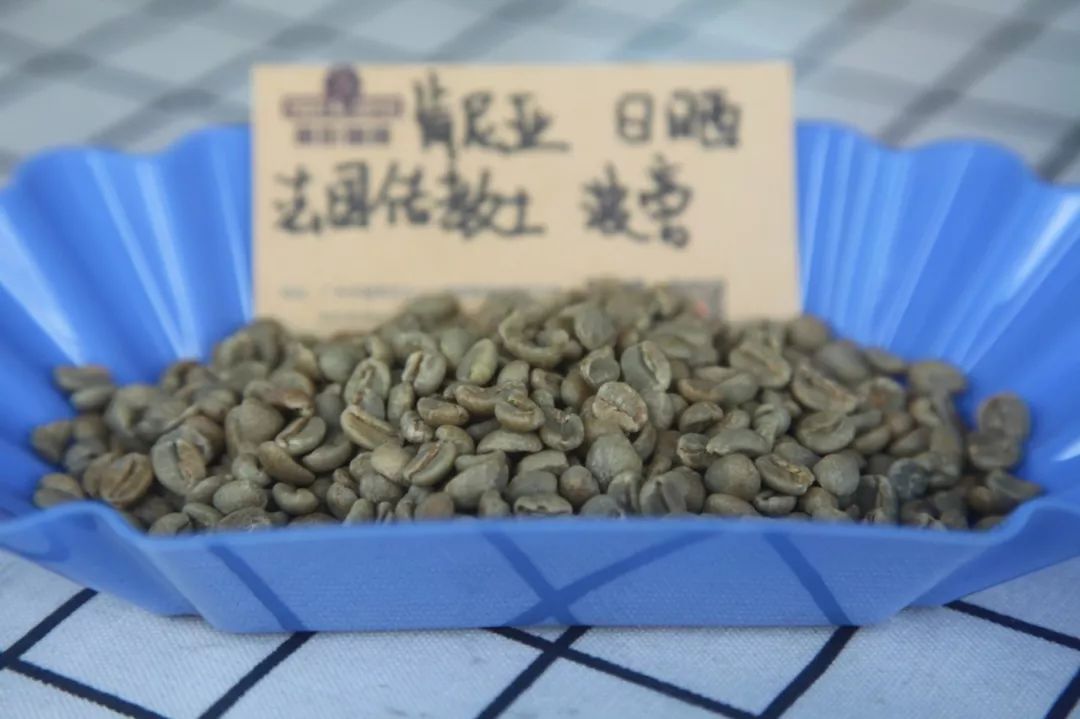
This breed of coffee is the missionary bourbon, and French missionaries brought bourbon trees to Kenya around 1892-1893. This native bourbon tree species, known as renchMission Varietal (French missionary species), avoids scientific improvements in the planting process and retains the original flavor of bourbon.
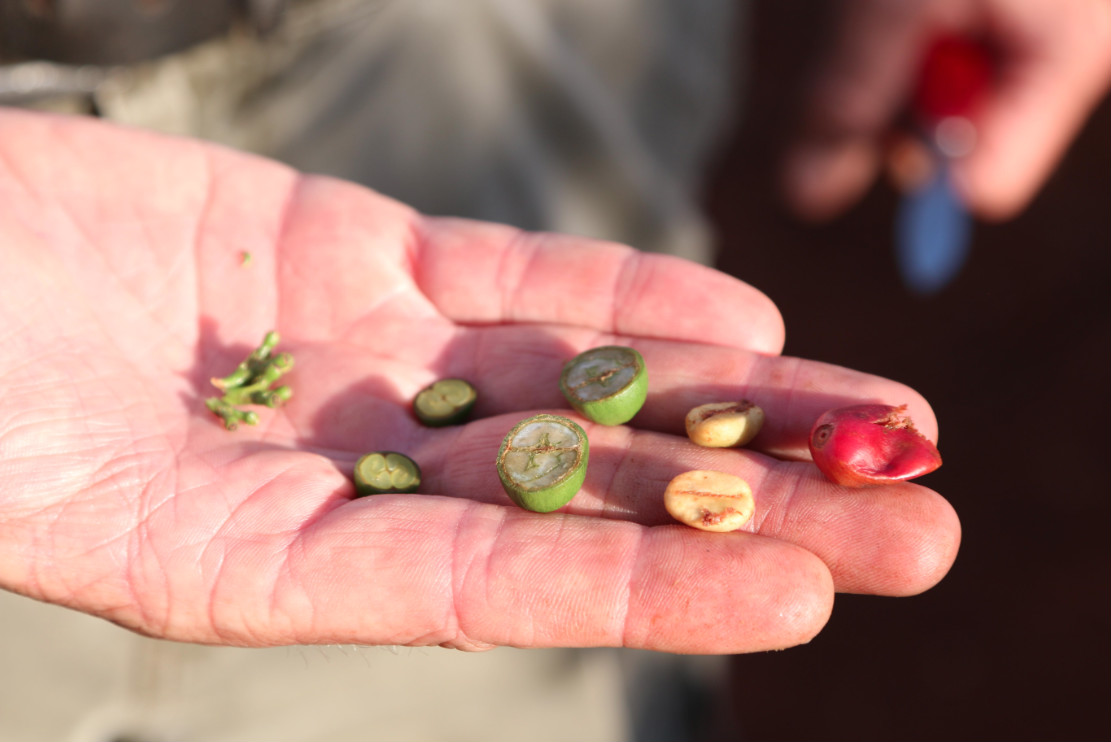
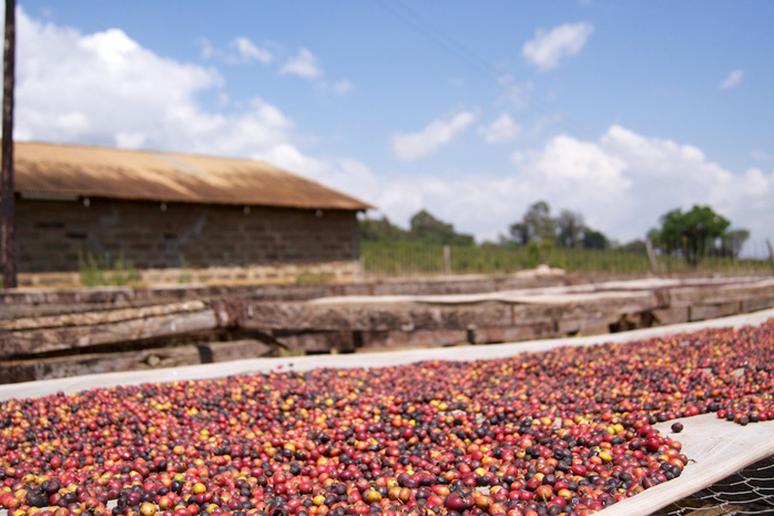
This coffee is not graded according to Kenya, which is probably due to the micro-batch, but it has a high defect rate and does not look good. The flaws in the traditional tanning method have reduced the appearance of this coffee, so what is its flavor? Let's try it.
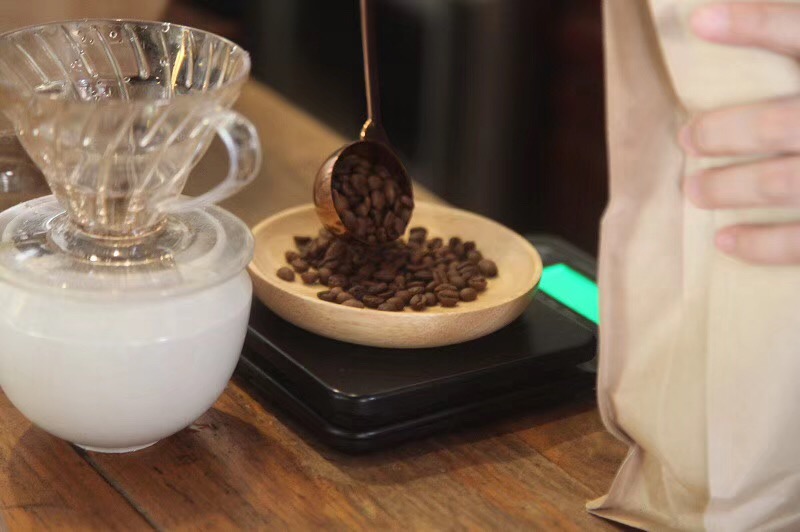
What's amazing is that this coffee tastes good! Dry aroma with sun fermentation, dried fruit and vanilla, sipping can drink caramel, vanilla, comprehensive fruit, solid juice, finish with berries, strong jackfruit, coffee flowers. The overall performance is like the wild ancient morning taste of Africa, suitable for small sips and slowly taste, the complex aroma is difficult to give up ~
Appendix
The following is the information card of the above 2 coffee beans for Qianjie Coffee. Interested friends can click on the link to view the detailed introduction, baking and brewing suggestions.
[Bourbon, a French missionary in Haniyeh Manor, Kenya]
Country: Kenya
Area: card (Thika)
Processing plant: Haniyeh Manor (ChaniaEstates)
Altitude: 1525 m
Variety: French missionary bourbon species
Treatment: sun treatment
* * *
[Kenya Asali AA TOP exquisite 72-hour washing]
Country: Kenya
Producing area: Sika Thika
Processing plant: Asali honey processing plant
Altitude: 1550-1750 m
Soil: volcanic soil
Rating: AA TOP
Variety: sl-28,sl-34
Treatment: 72 hours washing
Qianjie Coffee Editor's words: the characteristic flavor of Kenya is sour, especially the lightly roasted Kenyan washed coffee often has the sour aroma of tomatoes and berries, and if it is roasted too lightly, it will have the smell of grass and sour. It is not easy to bake and brew Kenya coffee properly, you will find that the smell of honey is similar to that of honey in the wet fragrance, and the fragrance of flowers is complex and changeable. Whether it is tanned or washed Kenyan coffee, the water temperature should not be too low, generally 90: 92 ℃ is more suitable.
Important Notice :
前街咖啡 FrontStreet Coffee has moved to new addredd:
FrontStreet Coffee Address: 315,Donghua East Road,GuangZhou
Tel:020 38364473
- Prev
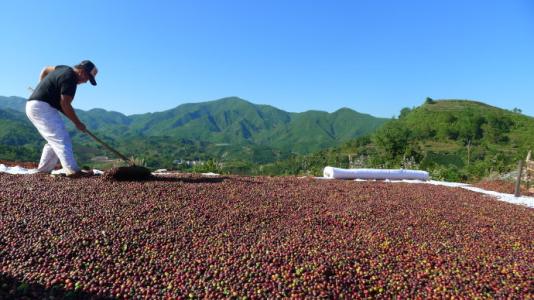
A brief description of how to brew the taste and flavor of Yunnan small-grain coffee planting technology
Description of how to brew the taste and flavor of Yunnan small-grain coffee planting techniques A brief introduction to the description of how to brew the taste and flavor of Yunnan small-grain coffee planting techniques how to brew the taste and flavor description of Yunnan small-grain coffee planting techniques how to brew taste and flavor description of Yunnan small-grain coffee planting techniques how to brew taste and flavor description of Yunnan small-grain coffee planting techniques how to brew taste and flavor description of Yunnan small-grain coffee planting techniques how to brew taste and flavor description of Yunnan small-grain coffee planting techniques how to brew taste and flavor description of Yunnan small-grain coffee planting techniques how to brew taste and flavor description of Yunnan small-grain coffee planting techniques how to brew taste and flavor description of Yunnan small-grain coffee planting techniques how to brew taste and flavor description of Yunnan small-grain coffee planting techniques how to brew taste and flavor description of Yunnan small-grain coffee According to different varieties of branches, growth habits, fruiting habits, different environments and different management
- Next

Description of characteristics and Flavor of Colombian Xuefeng Coffee beans
Columbia Xuefeng coffee bean flavor description altitude treatment dry aroma with drupes (roasted nuts), Chinese fir, almonds, wet aromas with sweet aromas of cocoa, nuts and caramel; taste balanced, slightly sour, plum acid brings sweetness, sweetness is obviously similar to sucrose, with floral aromas, sweet plum kernels, Pu'er tea flavor. Whether it is hot or cool, Xuefeng has a different wind.
Related
- Detailed explanation of Jadeite planting Land in Panamanian Jadeite Manor introduction to the grading system of Jadeite competitive bidding, Red bid, Green bid and Rose Summer
- Story of Coffee planting in Brenka region of Costa Rica Stonehenge Manor anaerobic heavy honey treatment of flavor mouth
- What's on the barrel of Blue Mountain Coffee beans?
- Can American coffee also pull flowers? How to use hot American style to pull out a good-looking pattern?
- Can you make a cold extract with coffee beans? What is the right proportion for cold-extracted coffee formula?
- Indonesian PWN Gold Mandrine Coffee Origin Features Flavor How to Chong? Mandolin coffee is American.
- A brief introduction to the flavor characteristics of Brazilian yellow bourbon coffee beans
- What is the effect of different water quality on the flavor of cold-extracted coffee? What kind of water is best for brewing coffee?
- Why do you think of Rose Summer whenever you mention Panamanian coffee?
- Introduction to the characteristics of authentic blue mountain coffee bean producing areas? What is the CIB Coffee Authority in Jamaica?

